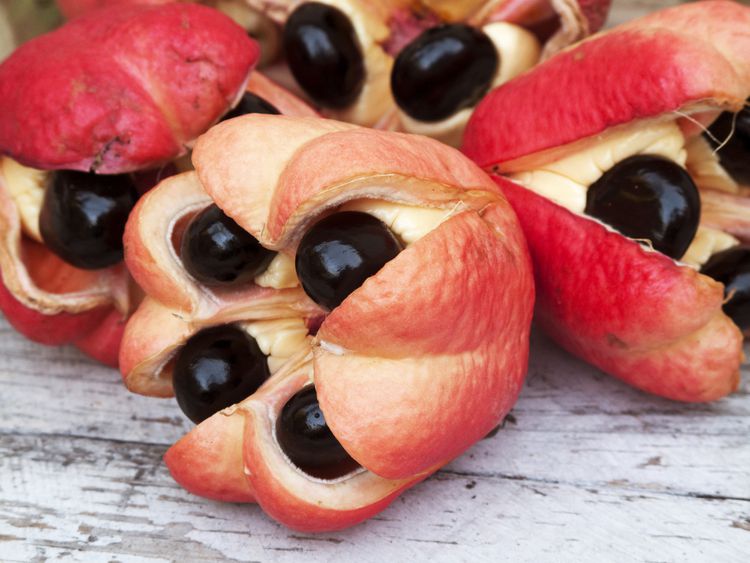Health Benefits of Ackee
What are the health benefits of ackee?
Ackee is a fruit that is native to West Africa but is also cultivated in tropical regions around the world. It is particularly popular in Caribbean cuisine, where it is often used in dishes such as ackee and saltfish. Ackee offers several potential health benefits, including:
- Rich in Nutrients: Ackee is a good source of vitamins and minerals, including vitamin C, vitamin A, potassium, and fiber. These nutrients are important for overall health and well-being.
- Heart Health: Ackee contains antioxidants, such as vitamin C, that can help reduce inflammation and protect against heart disease. Additionally, the potassium content in ackee may help regulate blood pressure levels.
- Weight Management: Ackee is low in calories and high in fiber, which can help promote feelings of fullness and aid in weight management. It can be a healthy addition to a balanced diet.
- Digestive Health: The fiber content in ackee can help support digestive health by promoting regular bowel movements and preventing constipation.
- Brain Health: Ackee contains vitamin C, which is important for brain health and cognitive function. It may help protect against age-related cognitive decline.
- Immune Support: The vitamin C content in ackee can help boost the immune system and protect against infections and illnesses.
- Skin Health: Vitamin C is important for skin health, as it helps protect the skin from damage caused by free radicals and promotes collagen production, which can help reduce the signs of aging.
It’s important to note that while ackee offers several potential health benefits, it should be consumed ripe and properly prepared. Raw or unripe ackee contains a toxin called hypoglycin, which can cause serious health problems if ingested. To safely enjoy ackee, it should be harvested when ripe and cooked thoroughly before consumption.
What are the health risks of ackee?
Ackee, when not prepared properly, can pose serious health risks due to its toxin content. Here are the main health risks associated with ackee:
- Hypoglycin Toxin: Unripe ackee contains high levels of hypoglycin A and hypoglycin B, which are toxic compounds that can cause hypoglycemia (low blood sugar) and potentially lead to more severe complications such as vomiting, seizures, coma, and even death. The fruit must be fully ripe and properly prepared to reduce the risk of hypoglycin toxicity.
- Ackee Poisoning (Jamaican Vomiting Sickness): Consuming unripe ackee or improperly prepared ackee can result in a condition known as Jamaican Vomiting Sickness, characterized by symptoms such as vomiting, abdominal pain, diarrhea, dehydration, and in severe cases, seizures and coma.
- Allergic Reactions: Some individuals may be allergic to ackee, resulting in symptoms such as itching, swelling, hives, or difficulty breathing. Allergic reactions to ackee are rare but can be severe.
To reduce the risk of ackee poisoning, it is important to only consume ripe ackee fruit that has been properly harvested and prepared. The ackee fruit should be allowed to ripen on the tree until the pod naturally splits open, revealing the edible arils. The arils should be cleaned, washed, and boiled for at least 15 minutes before consumption to ensure that any remaining toxins are neutralized.
It’s also important to note that the seeds and arils of the ackee fruit should be separated during preparation, as the seeds contain higher concentrations of hypoglycin toxins. Overall, when prepared and consumed correctly, ackee can be enjoyed as a nutritious and delicious food.




